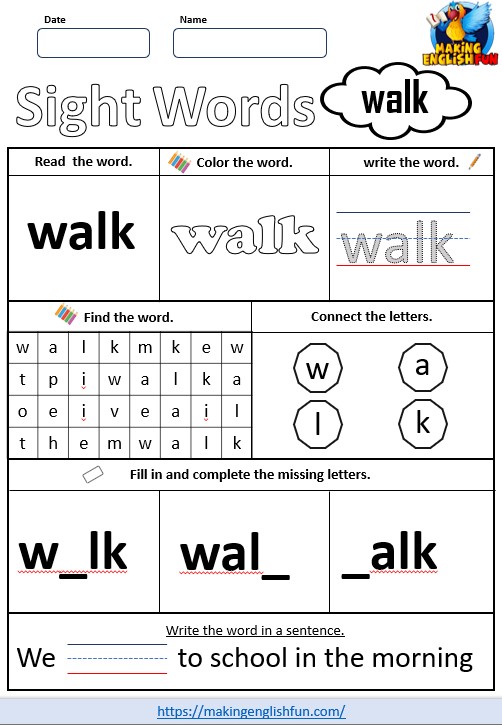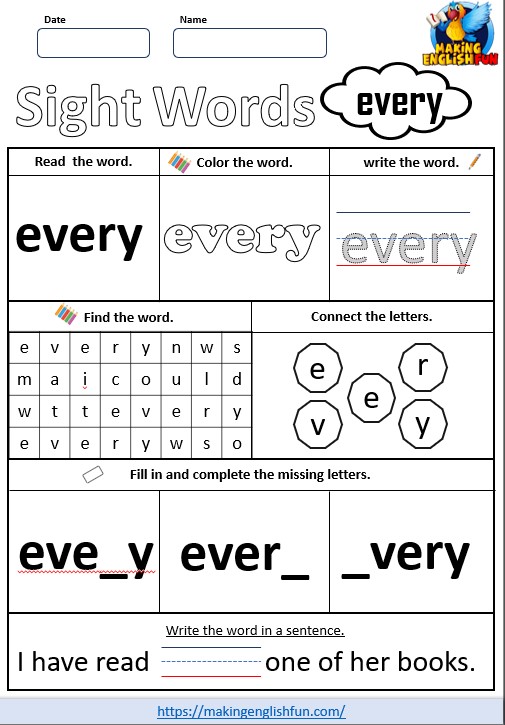How to Teach Pre Reading Skills to your Children?
Prior to young children picking up books, or engaging in phonics tuition there are a range of skills they need to develop to ensure they develop reading skills effectively. These skills are often called pre reading skills, although they have a few other descriptions including emergent reading, pre literacy and early reading. They all amount to the same set of skills.
What Are Pre Reading Skills and How to Teach Them?
The teaching of Prereading skills requires developing competency in the following skills: Phonic awareness, oral development, narration, text awareness, letter knowledge and print motivation. Storytelling, letter and word games and thinking aloud are all methods that help develop pre reading skills.
To achieve this a multi method approach is required and we offer explanations, advice and resources below for both parents and early years teachers.
It is especially beneficial for emergent readers to develop as many of these skills prior to entering formal education, a stressful enough experience for most children. fortunately there are hundreds of strategies to help achieve this and almost all of them are both fun and engaging for parents and more importantly children! We will offer some advice so help parents cover these systematically below.
Why are pre-reading skills so important
Before children start to undergo formal reading instruction including phonics, comprehension and grammar there are a set of skills we as teachers and parents need to help them develop. These are the pre-reading skills we discuss below. They seem a lot of work but most parents are doing these things already, so hopefully we just give you a little more structure and perhaps a few more ideas to help you achieve even more with your future little readers!

Oral Language skills / Vocabulary for Pre Reading.
Oral development is crucial to develop pre reading skills. Prior to school the average 5 year child has between 2000 and 2300 expressive (words they can use voluntarily use to express themselves), the average 2/3 year old can use between 200 and 1000 words. in those 2 or 3 years their vocabulary both receptive and expressive expands hugely. This skill develops naturally by communicating with their family but there are simple strategies that can help to improve and expand your children’s development.
Improving children’s vocabulary:
- Read to and with your children every chance you get. It improves more that just their vocabulary. You can choose picture books, and action books. I used Press Here ( stunning idea of a book) and the Book with no Pictures (if you want to go wild!) Reading to your children and allowing them to follow the words as you read allows them to start to relate sounds to letters. (also its a lot of fun!!)
- Don’t be afraid of using more complex vocabulary, you can always explain it to your children, they love to think they are learning ”grown up words”
- If you learn a new word, especially adjectives, ask your children to find something of theirs that could match it. This could be a toy, or a piece of clothing. It starts the process of them making connections between tangible things and words.
Print Motivation – Pre Reading
Instilling a love of books, reading and imagination in children is possibly the most important skill in pre reading. If you can have your child asking you to read to them or with them, or looking through books on their own, and picking them up in books stores you know they are developing their print motivation skills. Make sure you nurture them by doing the following!
How to encourage a love of reading in children
- Let your children see you reading as often as you can. Especially for fun. Let them sit with you as you write out shopping lists, even let them copy it and then both use it when you go shopping.
- Writing a message to a loved one, why not spell it out for your pre reading to type it one the screen, or sign it with their name.
- As mentioned above, and it will be mentioned again as its so very important, read with your child as much as you can. Stories at bed time, little reading games over breakfast and in the car, games of eye spy anything to keep them engaged, building vocabulary and loving learning.
- Spend time in book shops, or libraries with your little ones and allow them ( within reason of course) to choose books that they like. If they are interested in Dinosaurs then show them books on dinosaurs, if animals the same. If children already have a curiosity on a topic you have have half the battle won. Make sure these books are used, and then you can make the trip a regular occurrence. As a teacher I often allow my class to choose what book we will read, and what tasks we will do before and after reading. Giving a little autonomy to children is great training, and a great motivator.

Narration and Retelling – Pre Reading Skill
Developing these skills allows children to both learn and demonstrate skills that become increasingly important as they develop their reading skills later in school, and otherwise, life. It is simply being able to use their vocabulary to tell the story back to the reader, or predict ( getting technical now!) what may happen in the coming pages. You may understand why your children want to hear the same story again and again each bedtime, it allows them to show off their knowledge and practice the language they have learnt from previous readings. If you have younger children this can be an opportunity to show off their vocabulary as well, it may just be colors, or animal names but each time they do it voluntarily you can take pride that they are doing this as they want you to know that THEY know, and they are actively engaging with you and the text.
Teaching Children how to retell a story.
- If the language isn’t ability isn’t quite there with your child, then try to get them to act it out with you. Expressive language may not be available to them, but their receptive language will be more diverse. Basically a long way to say they will be able to understand your instructions if you act as director!
- You can try the above tip by making up stories with your children’s. They have to act it out as you make them up. This is a lot of fun with older children as well!
- Reverse roles, instead of you reading a bedtime story, ask your child, to read or tell you one of their favorites. They will love to take the role of parent!
- To achieve some of the above takes you will have to introduce repetitive books, good ones there are lot of pretty dull ones out there. It allows children to become familiar with a text and build confidence to take risks with their reading.
PRE-READING SKILL: PRINT AWARENESS
We often forget how we learnt skills when we were very young, but at some point someone in our lives did sit down and show us, how to tie our laces, how to button a shirt and how to deal with books and text. Now its your turn to share that knowledge to your children. SO grab the book, put it in your children’s hands, show them the words, point to letters, show them which way the words go and demonstrate the letters and the names and sounds they have, then jump in and open the pages!

HOW TO ENCOURAGE PRINT AWARENESS SKILLS
- let them control the pages in the book. however set ground rules for this as often in their enthusiasm they will was to turn to the next page too quickly.
- You will have to pre teach how to turn pages and hold books as it doesn’t come naturally. when you do pay in mind the difference in size of.your children’s hands, it is easy to forget.
- While reading you, or your children, should point to the words. It is better if they do this but you may have to work up to that. even if they don’t understand the words at this moment it teaches them how text works, that words make sounds, how text is broken up on the page etc.
Letter Sounds Recognition – Pre Reading Skill
This skill is the skill that i would LOVE every student who walks into my grade 1 classroom to have. It is simply the understanding that each letter has both a name and a sound. (yes some have more than one, but that’s my job and comes later) If students can acquire this before grade 1 then phonics instruction in primary school curriculum will be much easier a concept for them to understand.
- Sing Phonics Songs and Alphabet songs
- if they have the fine motor skills, introduce Alphabet training exercises. ( we have free ones here)
- Point about letters and test your children with beginning sounds ( and more if you can)

Phonological Awareness Skills – Pre Reading Skill
Although these are classified as a pre reading skill I would be a little hesitate to say that these skill are firm in the pre reading skills set. Phonological skills, are also firmly in Phonics skills which is my daily bread and butter. I definitely agree that learning letter sound, and sound word relations ships are really important, however it is at later stages where this can be explicitly taught. Children have to gain confidence with words, before they try to deconstruct or manipulate the sounds in them.
However after saying this, if there is opportunity to teach and its appropriate then introducing elements of this into reading sessions is a perfectly acceptable strategy. I have the book with no pictures as a firm favorite in my grade one curriculum and that is making up silly words on every page. We also have a lot of resources on our site for phonics and will link to them below.
- Our phonics resources are FREE here – samples and individual sheets
- and paid here in workbooks and bundles.
- Sing songs, phonics songs are great to get them used to the terms, but also silly sounds (here is one of my favorites for the vowel songs) and another one of my favorite for actions. both come from children’s parties I went to when I was just a boy.
Although these skills have the potential to look overwhelming, take heart, most parents are doing them all the time without realizing it. It is not needed to be sitting there constantly reinforcing them with your children. Just like Phonics a little and often approach is better than long periods of intense practice. The article is just meant to give you some strategies and some ideas that you may not thought of before. In that we hope we have succeeded.
Enjoy the reading time with your little ones!
if you want to know more there are 9 activities to try here for emergent readers.

Hi I’m Marc. A teacher of over 15 years, English, General Studies and Outdoor Education. Thought it was about time to sharing both what I have learnt during that time and the resources I have put together. On this site we aim to teach the theory and share our thoughts, but also go that one step further and give you access to the hard resources you need for your class or for you children







2 Comments